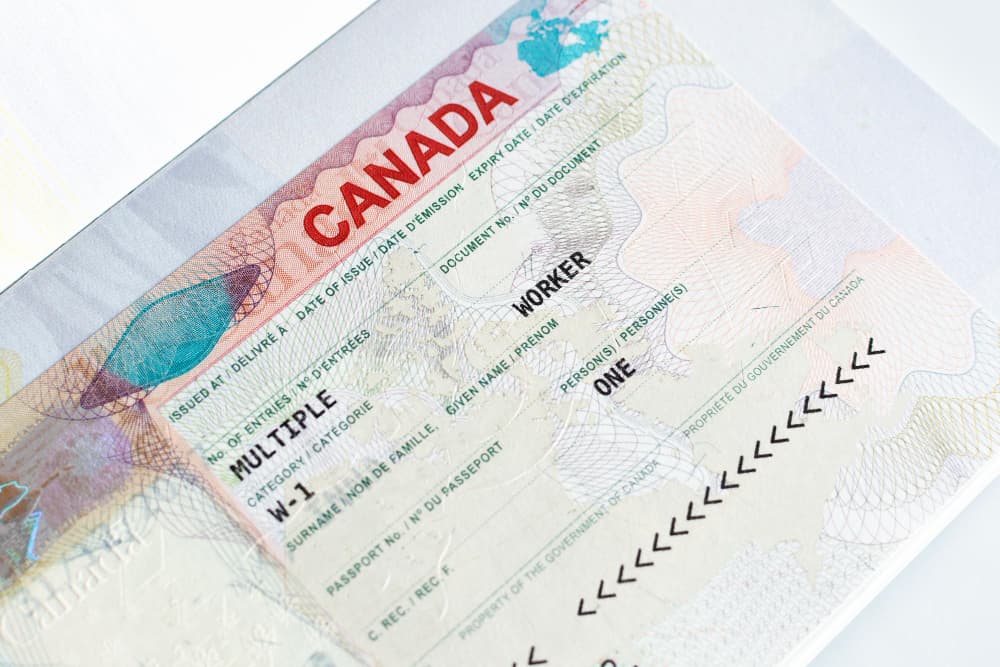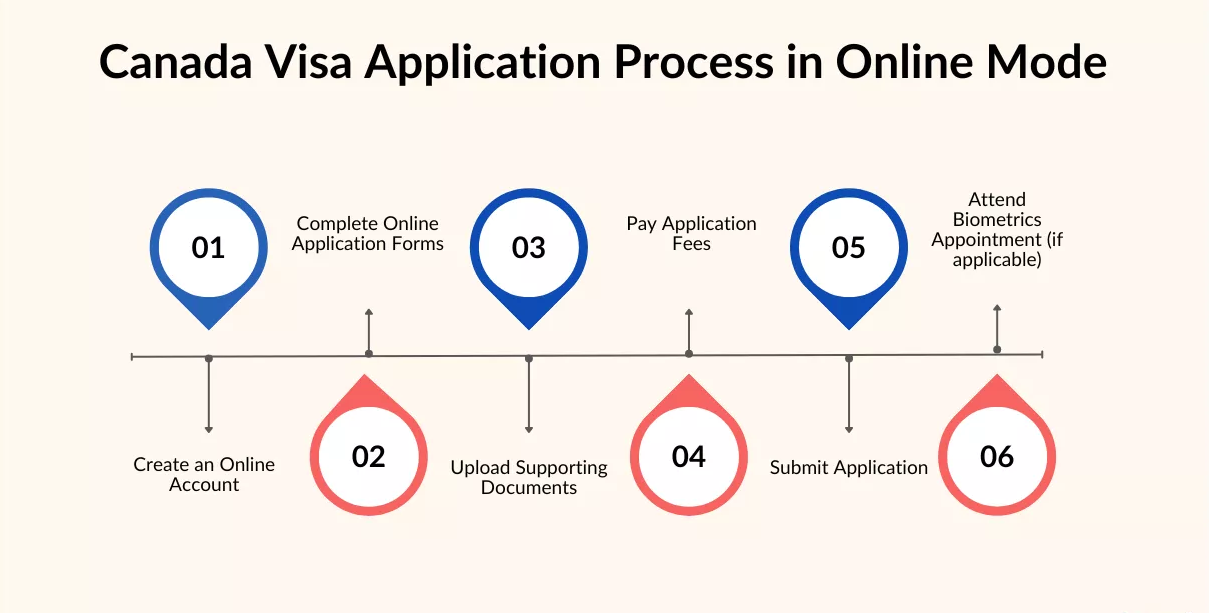Canada has long been a preferred destination for international students, skilled workers, and visitors seeking new opportunities. With its world-class education system, thriving job market, and high quality of life, the country has attracted millions of immigrants over the years. However, new rules for Canada immigration set to take effect in 2025 could change the landscape for those aspiring to study, work, or settle in the country.
Planning to Move to Canada? Here’s What’s Changing in Immigration for 2025
These new immigration policies bring stricter visa regulations, updated eligibility criteria, and increased enforcement measures. For many, the dream of studying or working in Canada may now come with additional challenges, requiring careful planning and compliance with evolving laws.
In this article, we’ll break down the new rules in Canada for international students, skilled workers, and visitors, helping you stay informed and prepared. Whether you’re applying for a visa or already residing in Canada, understanding these changes is crucial to navigating your future successfully.

Overview of the 2025 Canada Immigration Rules
In 2025, Canada’s immigration system will undergo major changes, impacting international students, skilled workers, and temporary residents. The government has introduced these new policies to address labor shortages, streamline visa approvals, and tighten border security. However, these changes also bring stricter regulations that may make it more challenging for immigrants to settle in Canada.
Key Areas of Focus in the New Immigration Rules:
✅ Revised Visa Approval Criteria – The eligibility requirements for study permits, work visas, and permanent residency applications have become more competitive. Applicants will now need to demonstrate higher financial stability, stronger academic or professional qualifications, and clear intent to comply with visa conditions.
✅ Stricter Enforcement of Temporary Visas – Border officers have been granted expanded authority to deny entry, cancel visas, or remove individuals who are suspected of overstaying or violating their visa conditions. This will significantly impact international students, temporary foreign workers, and tourists.
✅ Updates to Processing Times & Residency Pathways – The government aims to streamline immigration processing under Citizenship Canada immigration policies. However, family sponsorship programs may experience delays, and Express Entry System updates could make it more competitive for skilled workers to qualify.
Understanding these policy changes is essential for anyone planning to move to Canada in 2025. By staying informed, applicants can better prepare for the evolving immigration landscape and improve their chances of securing a visa.
Key Changes Affecting International Students
Canada has always been a preferred destination for international students, but the new rules for Canada immigration 2025 introduce stricter requirements for study permits, visa renewals, and compliance with immigration laws. These changes aim to ensure that only genuine students with strong academic and financial backgrounds can enter and remain in the country.

Major Updates to Study Permits & Student Visas
✅ Higher Financial Requirements – Applicants must now show proof of greater financial stability to cover tuition fees, living expenses, and other costs. This measure ensures that students can support themselves without relying on unauthorized work.
✅ Stronger Visa Renewal Policies – Students must maintain good academic standing to renew their study permits. Poor grades, extended course durations, or non-compliance with study conditions may lead to visa refusals.
✅ Tighter Post-Graduation Work Permit (PGWP) Rules – Canada has revised its PGWP policies, making it harder for students to transition to work permits if their institutions or programs do not meet the eligibility criteria.
Increased Border Control & Visa Cancellations
Canada’s immigration officers now have expanded powers to deny or cancel student visas if they suspect a student may not leave Canada after their permit expires. This means:
❌ Stronger scrutiny at entry points – Even if a student visa is approved, border officers can still deny entry if they doubt an applicant’s intentions.
❌ Immediate visa cancellations – If a student violates any visa conditions, such as working beyond permitted hours or failing to stay enrolled, they risk deportation.
❌ Limited re-entry opportunities – Those who leave Canada during their studies may face challenges returning if officers suspect misuse of their visa.
What International Students Should Do
With these stricter policies, students planning to study in Canada in 2025 should:
✔ Ensure financial proof meets the latest requirements.
✔ Choose designated learning institutions (DLIs) that qualify for post-graduation work permits.
✔ Maintain legal status by complying with visa conditions and academic performance standards.
✔ Stay updated on Canada immigration law changes to avoid surprises.
By understanding these new regulations, international students can better prepare for a successful education journey in Canada while ensuring compliance with immigration laws.
Updates for Skilled Workers and Work Permits
Canada remains an attractive destination for skilled workers, but the new rules for Canada immigration 2025 introduce significant changes to work permits and permanent residency pathways. These updates focus on prioritizing certain industries, increasing the competitiveness of immigration programs, and tightening eligibility criteria.

Key Changes to the Express Entry System
The Express Entry System, Canada’s primary pathway for skilled workers, is undergoing a major overhaul to align with labor market demands.
✅ Higher CRS Score Requirements – Candidates will need higher Comprehensive Ranking System (CRS) scores to qualify for Invitations to Apply (ITAs). Education, work experience, and language proficiency will play a bigger role.
✅ Industry-Specific Invitations – Canada will prioritize workers in high-demand sectors such as healthcare, IT, engineering, and skilled trades. Those in these fields may receive faster processing and higher selection chances.
✅ Changes in Work Experience Criteria – Some skilled workers may need more years of experience or a valid job offer to qualify for permanent residency.
New Rules for Temporary Work Permits
Changes to Temporary Foreign Worker Program (TFWP) and International Mobility Program (IMP) mean that temporary work permits will be harder to obtain and renew.
❌ More employer restrictions – Employers must now provide stronger proof of labor shortages before hiring foreign workers.
❌ Tougher compliance monitoring – Work permit holders must strictly follow employment conditions to avoid visa cancellations.
❌ Limited pathways to PR – Temporary workers may struggle to transition to permanent residency unless they meet the new Express Entry criteria.
What Skilled Workers Should Do
To increase the chances of obtaining a work permit or PR in Canada, skilled workers should:
✔ Improve CRS scores by enhancing language skills and gaining more experience.
✔ Target high-demand industries that are receiving priority under new policies.
✔ Secure a valid job offer from a Canadian employer to strengthen their application.
✔ Stay updated with Canada immigration news updates for skilled workers to adapt to evolving policies.
With these stricter immigration policies, early preparation and strategic planning are essential for skilled workers who wish to build a career in Canada.
Please visit their website for more information. 🔗 Visit: www.canada.ca
Click this link to learn about Canadian immigration law. 🔗 Visit: Click Here
Visit our link to learn about remote jobs in Canada 🔗 Visit: Click Here
Stricter Visa Regulations and Their Impact
The new rules for Canada immigration in 2025 introduce stricter visa regulations, making it more challenging for international students, skilled workers, and visitors to obtain or renew their visas. These measures aim to enhance border security, prevent visa fraud, and ensure that immigrants comply with Canadian immigration laws.

Expanded Powers for Visa Officers
Under the new policies, Canadian immigration officers now have greater authority to assess visa applications and even revoke visas in certain cases.
🔹 Visa Denial for Risk of Overstay – If an officer believes an applicant may not leave Canada after their visa expires, they have the right to deny or cancel the visa.
🔹 More Frequent Visa Cancellations – Visa holders who fail to comply with the terms of their stay (such as working unauthorized jobs or missing required reporting) face deportation or re-entry bans.
🔹 Stricter Entry Requirements – Travelers may be subject to enhanced screening at airports and border crossings, especially if they have a history of visa violations.
Stricter Rules for Visitors and Tourists
The Temporary Resident Visa (TRV) process has become more rigorous, affecting tourists and short-term visitors.

❌ Tougher Screening for Intent to Stay – Tourists who do not show clear ties to their home country (such as strong financial stability or return tickets) risk visa rejection.
❌ Shorter Visa Durations – Some visitors may receive reduced-length visas rather than the traditional six-month stay.
❌ Increased Deportations – Visitors caught violating visa conditions (e.g., overstaying or engaging in unauthorized work) will face removal and future bans from re-entering Canada.
What This Means for Visa Applicants
Due to these stricter regulations, visa applicants must take extra care in preparing their applications and maintaining compliance.
✔ Provide strong proof of intent to return – Applicants should show solid ties to their home country (family, job, property, etc.).
✔ Avoid overstaying or violating visa conditions – Staying past the permitted duration or working without authorization can lead to deportation.
✔ Stay informed about immigration updates – Since policies are evolving, applicants should check official government sources regularly.
With border officers given more power to enforce rules, applicants must be extra cautious and follow all visa regulations. Whether applying for a study permit, work visa, or visitor visa, understanding these stricter policies can help ensure a smooth and successful immigration process.
- What These Changes Mean for Applicants
The new 2025 rules for Canada immigration will have a significant impact on applicants. With stricter requirements and enforcement, it’s crucial for those planning to study, work, or visit Canada to be well-prepared and understand the changes. Here’s what these changes mean for you:
- More Rigorous Application Process
With tougher criteria for students, skilled workers, and temporary residents, applicants will face a more competitive and thorough review process. The Canadian government is focusing on ensuring that those applying for visas, permits, and residency are genuine and capable of contributing to the country’s economy and society.
🔹 For Students – You’ll need to demonstrate stronger financial backing and provide clear plans for your post-graduation career. Keeping a solid academic record is essential to renew study permits.
🔹 For Skilled Workers – High-level qualifications, work experience, and specific skills will be required to qualify under systems like Express Entry, especially as points for eligibility have increased.
🔹 For Visitors – Visa approval will depend more heavily on showing you will leave Canada when your visa expires. You’ll need to provide proof of strong ties to your home country (like a job or family).
- Increased Need for Documentation
With the stricter scrutiny, documentation is more important than ever. Immigration officers will carefully assess every application to ensure that all conditions are met.
✔ Ensure your documents are accurate and up-to-date – Any incomplete or inaccurate submissions could delay your application or even result in denial.
✔ Maintain financial records – Especially for students and workers, proof of sufficient funds, including bank statements and sponsorship letters, will be closely examined.
- Compliance with Immigration Laws
The new regulations give border officers greater authority to monitor and act against those who break immigration rules. For applicants, this means strict adherence to visa conditions is a must.
✔ Stay legally compliant – Overstaying your visa or working without authorization can lead to visa revocation and deportation.
✔ Know the rules for re-entry – If you’ve ever violated visa conditions, you could face issues when trying to return to Canada in the future.
- Increased Focus on Industry Demand
Canada is prioritizing certain industries and skill sets, especially in healthcare, IT, and engineering. This means that skilled workers in these fields may have an easier time gaining entry, while those in other sectors may need to meet additional criteria or have higher qualifications.
🔹 Industry-specific visas will likely see preference, making it important to understand which fields are in demand and tailor your application accordingly.
- Adapting to the New System
It’s important to stay informed about the ongoing changes in immigration policies. The rules are continuously evolving, and applicants must adapt quickly. Professional advice from immigration consultants or lawyers may be beneficial to navigate the updated policies effectively.
In summary, applicants need to be more diligent in their preparation and submission of documents to meet the new, stricter criteria. By following the guidelines and staying informed about the evolving immigration landscape, you can increase your chances of successfully moving to Canada.

Conclusion
Canada’s new immigration rules for 2025 introduce stricter visa requirements, tighter enforcement, and increased competition for international students, skilled workers, and visitors. While these changes aim to streamline the system and address labor market needs, they also make the immigration process more challenging. To improve their chances of success, applicants must stay informed, meet eligibility criteria, and ensure full compliance with visa conditions. With careful planning and preparation, individuals can still achieve their goal of studying, working, or settling in Canada.
📢 What are your thoughts on these new policies? Share your opinions and stay connected for more Canada immigration updates!